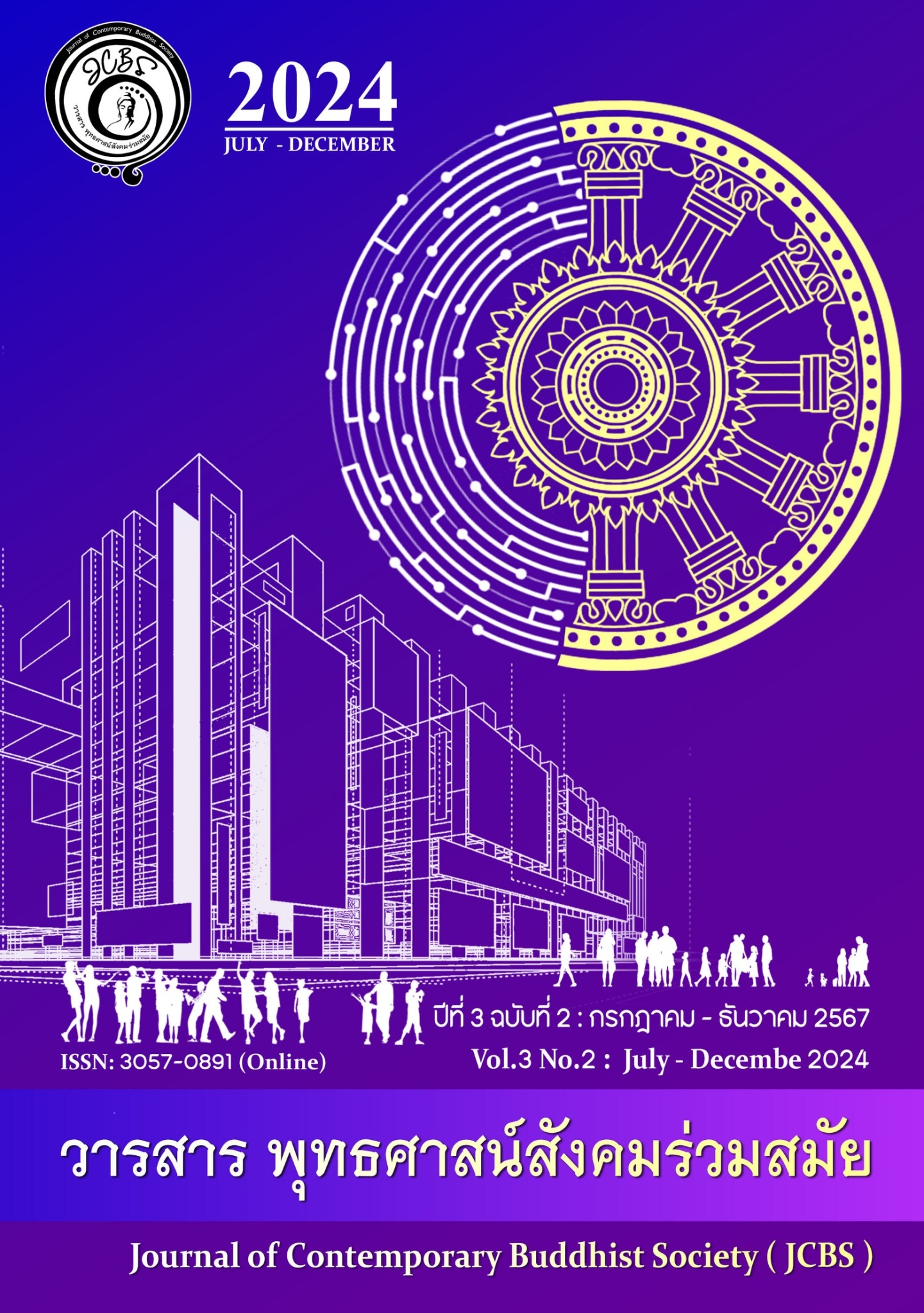Theravada Buddhist Philosophy for Individual and Community Development
Keywords:
Theravada Buddhist Philosophy, Individual, CommunityAbstract
This Article is a study of the concept of individualism in Theravada Buddhist Philosophy Concepts for Individual and Community Development.
The study found that individualism in the existentialism philosophy is popular with the freedom and responsibility to choose an enterprise with identity and acceptance. It will happen to themselves and to the society in which freedom is accepted and responsible for the truth. Individualism in Theravada Buddhist Philosophy discusses the unique characteristics of humanity that each person is capable of practicing in order to seek the truth of life according to his or her own ideas and paths. To develop a mental independence that does not hold on to objects and knows the realities of life and society in a mutually coherent way. Based on the analysis of the two concepts, the individualistic concept of existentialism is concentrated in terms of liberty without regard for others. Unlike individualism, Theravada Buddhist philosophy. It is an individualism that represents self-improvement and is ready to help others. By living together in self-understanding, and understand others, understanding the nature of man, and the development of individualism as a whole.
References
กษราภรณ์ บุรวัฒน์, เกศกนก พาพลงาม, จอ มิน, ฆนัฐกร ภาวะดี, โกสิต สังขพิทักษ์, พระครูปลัดประสิทธิ์ ปสิทฺโธ. (2563). “หลักธรรมกับการพัฒนาชุมชนเข้มแข็ง”. วารสารสิรินธรปริทรรศน์. ปีที่ 21 ฉบับที่ 2 กรกฎาคม - ธันวาคม: 387-397.
ปิ่นทิพย์ มโนสุจริตธรรม, พระมหาหรรษา ธมฺมหาโส และ รุ่งโรจน์ ศิริพันธ์. (2563). “วิกฤตครอบครัวในสังคมไทย: ศึกษาและเสริมสร้างครอบครัวสันติสุขตามหลักฆราวาสธรรม”. วารสารสันติศึกษาปริทรรศน์ มจร. ปีที่ 8 ฉบับเพิ่มเติม: 48-60.
พระธรรมโกศาจารย์ (ประยูร ธมฺมจิตฺโต). (2549). พุทธวิธีบริหาร. กรุงเทพมหานคร: โรงพิมพ์มหาจุฬาลงกรณราชวิทยาลัย.
พระพรหมคุณาภรณ์ (ป.อ. ปยุตฺโต). (2546). พจนานุกรมพุทธศาสตร์ ฉบับประมวลธรรม. กรุงเทพมหานคร: สำนักพิมพ์มหาจุฬาลงกรณราชวิทยาลัย.
________. (2551). พจนานุกรมพุทธศาสตร์ ฉบับประมวลธรรม. พิมพ์ครั้งที่ 12.กรุงเทพมหานคร: โรงพิมพ์มหาจุฬาลงกรณราชวิทยาลัย.
พระมหาพูนศักดิ์ วชิรวํโส (กมล). (2561). “แนวคิดปัจเจกนิยมในพุทธปรัชญาเถรวาท”. วารสารมหาจุฬาวิชาการ. ปีที่ 5 ฉบับที่ 2: 275.
มหาจุฬาลงกรณราชวิทยาลัย. (2535). พระไตรปิฎกภาษาบาลี ฉบับมหาจุฬาเตปิฏกํ 2500. กรุงเทพมหานคร: โรงพิมพ์มหาจุฬาลงกรณราชวิทยาลัย.
________. (2539). พระไตรปิฎกภาษาไทย ฉบับมหาจุฬาลงกรณราชวิทยาลัย. กรุงเทพมหานคร:
โรงพิมพ์มหาจุฬาลงกรณราชวิทยาลัย
สุชีพ ปุญญานุภาพ. (2551). พจนานุกรมศัพท์พุทธศาสนา ไทย-อังกฤษ. พิมพ์ครั้งที่ 8. กรุงเทพมหานคร: โรงพิมพ์มหามกุฏราชวิทยาลัย.
สมเด็จพระพุทธโฆษาจารย์ (ป.อ.ปยุตฺโต). จะพัฒนาคนกันได้อย่างไร?, (ม.ป.ป.).
สมเด็จพระอริยวงศาคตญาณ สมเด็จพระสังฆราช (จวน อุฏฺฐายีมหาเถร). (2546). ธรรมคดี. กรุงเทพมหานคร: บริษัท อมรินทร์พริ้นติ้งแอนด์พับลิชชิ่ง จำกัด (มหาชน).
Downloads
Published
How to Cite
Issue
Section
License
Copyright (c) 2024 Journal of Contemporary Buddhist Society = JCBS

This work is licensed under a Creative Commons Attribution-NonCommercial-NoDerivatives 4.0 International License.





